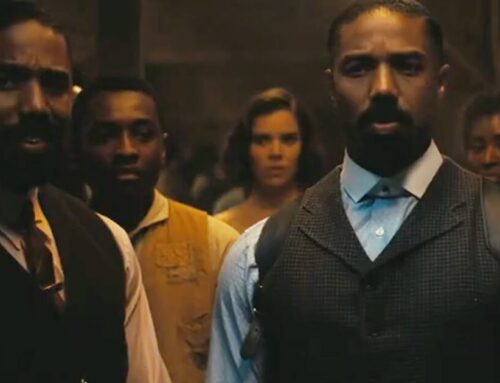THE HUNTING GROUND. The title alone suggests a population served up to predators. This is precisely the circumstance on college campuses all over the country, where, according to this shocking and stirring documentary “1 in 5 women in college is sexually assaulted, yet only a fraction of these crimes are reported, and even fewer result in punishment for the perpetrators.” How does this happen? That’s what Andrea Pino and Annie E. Clark–former UNC students and rape survivors–set out to discover and remedy, and what they find will outrage you–and arm you with knowledge to fight back.
The film begins with cameras trained on the fresh faces of high school seniors and their families, screaming with excitement, tears of joy running down their faces at the very moment they learn they’ve been accepted to college! In a series of cruel mirror images a few months later, we see the tear-stained faces of other young women, some visibly numb, some trembling as they recount being drugged, or dragged, or slammed unconscious before being sexually violated. One freshman was raped before classes had even begun. Another young woman committed suicide.
The ugly truth is here recounted by the same filmmakers who gave us the Oscar-nominated documentary THE INVISIBLE WAR (Kirby Dick, Amy Ziering, Amy Herdy) about the cult of sexual violence against women in the US military. In THE HUNTING GROUND they follow the courageous and determined Pino and Clark who discover that their own stories are not unique; they find it repeated thousands of times on American college campuses that run the gamut from elite Ivy League institutions, among them Harvard and Dartmouth, to local, private, state, and community colleges and universities.
And the assault is just the beginning. All of the women who survived, say how they were treated by their respective institutions afterwards– was worse than the rape itself. What does that mean? It means that institutions routinely questioned and blamed the victim, made it difficult for her (and occasionally him when the victim was male) to report the crime, denied that the crime existed at all, failed to investigate, and protected the offenders even if they were found guilty of the rape. Only a fraction of the offenses resulted in expulsion, let alone prison; the overwhelming majority of offenses were never pursued in a court of law.
Why would a college not protect its young women? The answer is simple and chilling: money. The chief role of a college president is fundraising, which means keeping the college’s image untarnished. Thus, colleges are not inclined to acknowledge, or make it easy to report offenses. They are less than forthcoming about the messy details of the social climate on campus. Imagine saying to the parents of incoming freshmen, “Please note, your daughter has a 1 in 5 chance of being raped if she attends school here. Now please make your check out to…” You get the picture.
The situation is exacerbated by the culture of athletics and the frat system, both of which are sources of big alumni funding. Athletes and frat boys are also among the key players in the perpetration of these crimes. The case of Florida State University Heisman Trophy-winning quarterback Jameis Winston and his accuser will make you want to scream. The local police failed to investigate rape accusations against the star athlete, never pursuing DNA evidence, even though his accuser submitted a rape kit. His accuser on the other hand was forced to drop out of school after being viciously harassed as a trouble maker who just wanted “attention” and might have ruined the team’s winning football season. Winston’s DNA was eventually a match. According to the film we can look for him as a first round draft pick in 2015.
In another remarkable interview, the filmmakers talked to one veteran campus security officer who told of being routinely discouraged from following through on assault complaints, and finally unable to stomach the job–resigned. There are expert witnesses who testify to institutional cover ups, the vilifying of victims, and the lifelong trauma to them and their families, no matter “how seriously” the colleges routinely say they take these reports.
BUT Pinot and Clark have come up with an inspired approach to fighting back–and again, money points the way. They have found an astute way of using Title IX, a federal civil rights law, which says that alleged assaults must be investigated and that the victims must be enabled to continue their education. The interpretation hits institutions where they live–in their pocketbooks. When the guy who raped you at last night’s keg party shows up in your math class without a care in the world, a woman can argue that her right to an education is compromised. If the institution is found in violation, they are at risk of losing millions of dollars in government funding.
Now that’s what I call the bottom line. And here’s the other one: This year an estimated 100,000 women will be sexually assaulted on college campuses across the country. That should make you fighting mad. In a world where violence against women is rampant, we must first look in our own back yards and clean up an epidemic deeply embedded in our own culture and values. We made our beds- and now it’s time to unmake them. I implore you to see THE HUNTING GROUND.






Leave A Comment
You must be logged in to post a comment.